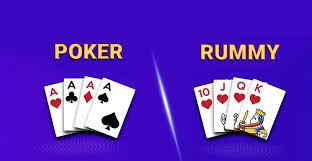
Slot machines are some of the most popular games in both land-based casinos and online gambling platforms. Their flashing lights, catchy sounds, and the promise of a big win attract millions of players every day. But despite their appeal, one common question persists: Is there a strategy for playing slot machines that can increase your chances of winning?
The short answer is no—slot machines are games of chance, and there is no way to guarantee a win. However, understanding how slot machines work, knowing the odds, and using certain strategies can help players manage their expectations, play responsibly, and maximize their enjoyment. In this article, we’ll explore the nature of slot machines, the myths surrounding slot strategies, and the best ways to approach them.
1. How Do Slot Machines Work?
Before diving into any potential strategies, it’s important to understand how slot machines work. There are two main types of slot machines: mechanical slots (traditional, physical machines) and video slots (modern, digital machines). However, regardless of the type, the core principle behind all slot machines is the same—they rely on random number generators (RNGs) to determine the outcome of every spin.
An RNG is a computer algorithm that continuously generates a sequence of numbers, which correspond to different symbols on the reels. When a player presses the spin button, the RNG selects a number that determines where the symbols will land. This process is completely random, meaning that there is no way for players to predict or influence the outcome of any given spin.
In other words, the outcome of each spin is entirely independent of previous spins, and there is no “pattern” or “strategy” that can be used to beat the RNG.
2. The Myth of “Hot” and “Cold” Machines
One of the most common myths in slot machine gaming is the idea that certain machines are “hot” or “cold.” A “hot” machine is believed to be due for a big win, while a “cold” machine is considered less likely to pay out. This myth stems from the human tendency to look for patterns and causes in random events—something psychologists refer to as apophenia.
In reality, every spin on a slot machine is completely independent of the one before it, thanks to the RNG. The idea that a machine can be “due” for a win is a fallacy. Slot machines don’t have memory or a pattern, so past outcomes do not influence future results. The chance of winning on the next spin is the same as it was on the previous one.
Though it’s fun to think that certain machines are luckier than others, this belief is a psychological illusion, and chasing after “hot” machines won’t increase your odds of winning.
3. The Return to Player (RTP) Percentage: What It Means for You
While there is no strategy that can guarantee wins, understanding the Return to Player (RTP) percentage of a slot machine can help you make more informed decisions about where to play.
RTP refers to the percentage of all wagered money a particular slot machine is programmed to pay back to players over time. For example, if a machine has an RTP of 95%, it means that, on average, it will pay back $95 for every $100 wagered. It’s important to note that this is an average over many spins, not a guarantee for individual sessions. The RTP doesn’t determine how much a player will win in any specific timeframe, but it can give you an idea of how favorable the odds are in the long run.
While you can’t influence the RTP, choosing machines with a higher RTP will statistically give you better odds over time. In general, online slots tend to offer higher RTPs than land-based machines, as online casinos have lower overhead costs.
How to Use RTP Information:
- Look for slots with an RTP of 95% or higher. Some machines offer RTPs as high as 98%.
- Compare different machines and their RTPs if you are looking for better long-term odds.
- Remember that RTP is a theoretical average—variance or volatility will still affect your short-term results.
4. Volatility and Variance: Risk vs. Reward
In addition to RTP, understanding volatility (or variance) is crucial when playing slot machines. Volatility refers to the level of risk associated with a slot game and how much the payouts can vary.
- Low Volatility: These machines tend to offer more frequent but smaller wins. They are ideal for players who want longer play sessions and are less concerned with hitting a big jackpot.
- High Volatility: These machines tend to have larger jackpots but offer fewer wins. Players are more likely to go long periods without hitting a payout, but when they do win, the payouts are often much higher.
When selecting a slot, consider your personal risk tolerance. If you’re looking for steady wins, low-volatility slots may be a better choice. If you’re hoping for a big win and are willing to risk a dry spell, a high-volatility game might suit you better. However, regardless of the volatility, there is no strategy to alter the outcome, as the results are still random.
5. Bankroll Management: The Key to Responsible Play
While there is no way to influence the outcome of slot spins, bankroll management is one of the most effective strategies for managing your experience and maximizing your enjoyment.
Here are some tips for managing your bankroll:
- Set a Budget: Decide in advance how much money you are willing to spend and stick to it. Never gamble more than you can afford to lose.
- Set Win and Loss Limits: Set a win limit where you’ll stop playing once you’ve hit a certain profit. Similarly, set a loss limit to prevent yourself from losing too much money in one session.
- Play for Fun: View playing slots as entertainment, not a way to make money. This mindset helps you manage your expectations and avoid chasing losses.
Bankroll management is about knowing when to walk away—whether you’ve won or lost. This is the only “strategy” that can help you avoid getting caught up in the addictive aspects of slot machines.
6. Using Bonuses and Promotions Wisely
Many online casinos offer bonuses, such as free spins or deposit matches, which can extend your playing time without having to spend more of your own money. While bonuses don’t directly affect your odds of winning, they do offer extra chances to play, which can be valuable in testing different machines.
If you’re playing at an online casino, always read the terms and conditions of the bonus offers. Look for ones that offer low wagering requirements, as this will allow you to keep any winnings more easily.
7. The Role of Luck
Ultimately, slot machines are games of pure luck. The RNG ensures that every spin is independent, and while you may get lucky and hit a big payout, there’s no way to predict or control the outcome. Slot machines are designed for entertainment, and the excitement comes from the possibility of a big win, but also the understanding that it’s a game of chance.
While it’s tempting to search for patterns, strategies, or ways to “beat the system,” the best way to approach slot machines is with a sense of fun and moderation. If you understand that you’re playing for enjoyment and are prepared for the fact that winning is never guaranteed, you can avoid the pitfalls of excessive gambling and maximize your experience.
Conclusion
To summarize, there is no real strategy for winning at slot machines. They operate on random number generators, making each spin independent and unpredictable. While you can improve your chances in the long term by choosing games with higher RTP or lower volatility, your results will always come down to luck.
The best approach to slot machines is to play for entertainment, manage your bankroll wisely, and stay mindful of your limits. By doing so, you can enjoy the thrill of the game while avoiding the risks associated with gambling. Remember, the fun of playing slots should come from the excitement of the game itself, not the hope of winning big every time you spin.
Join KKClub today for exclusive casino games and big wins – your lucky streak starts here!



